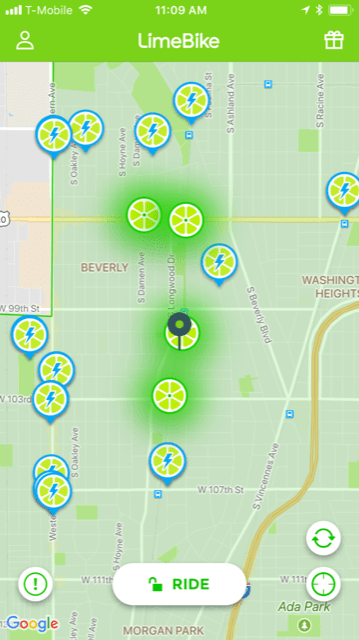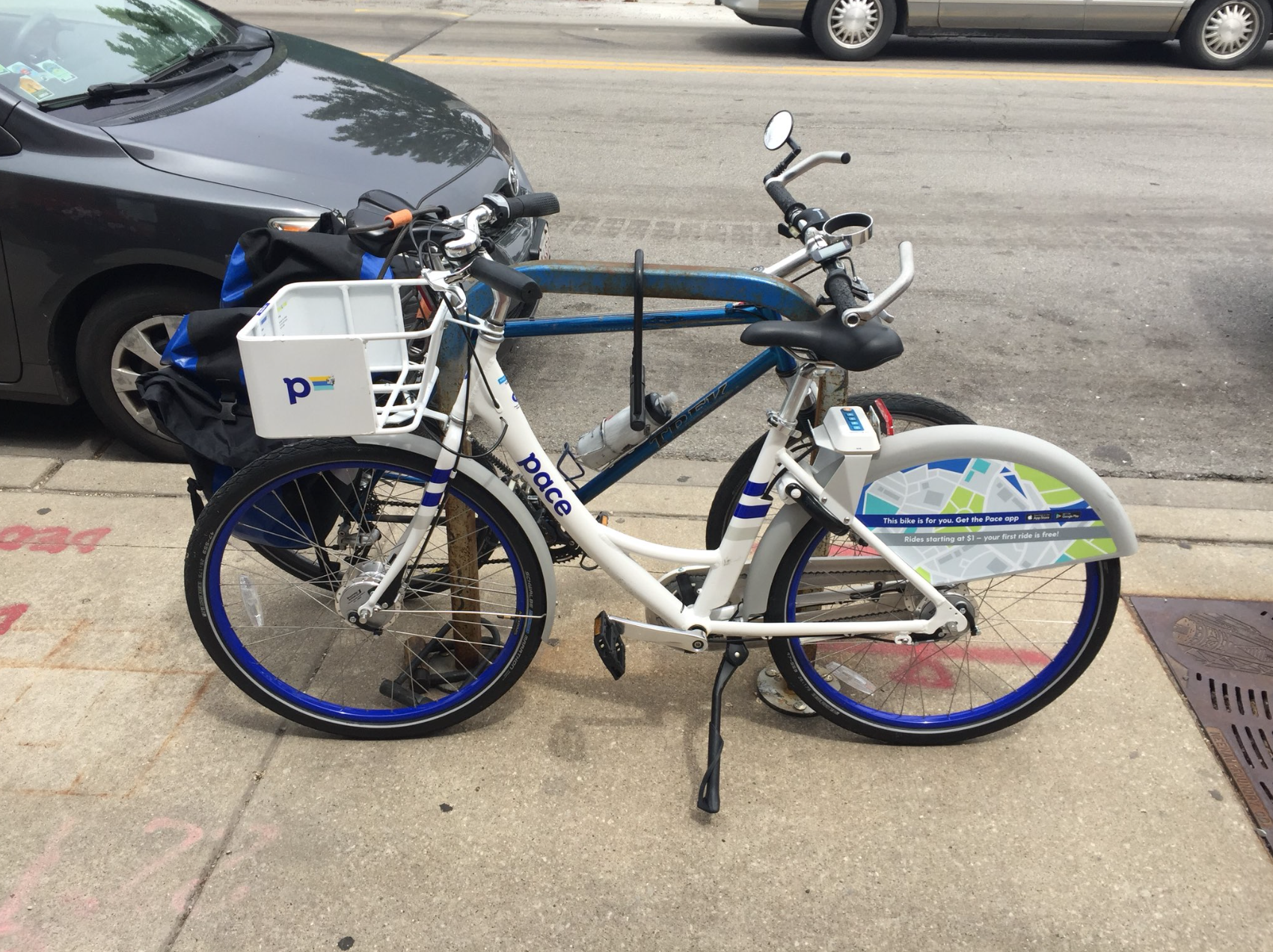Update 6/8/18, 12:30 PM: The city's dockless bike-share permit requirements state, "Vendors are required to submit data to the City’s Department of Transportation... on the 1st of every month, starting on June 1." However, Dave Reed, the expansion manager for Zagster, which owns Pace, noted that per the city's more recent instructions to vendors, the first round of data for all vendors is to be submitted by June 11.
The city’s dockless bike-share permitting rules required the vendors to provide trip data and other stats to the Chicago Department of Transportation on a monthly basis, starting on June 1. But one month after Chicago’s dockless bike-share pilot launched, city officials still don’t have information on how much the use the bikes are getting and whether the vendors have been doing the public outreach that’s required by the permitting guidelines.
The pilot area includes most of the city south of 79th Street. At yesterday’s Mayor’s Bike Advisory Council meeting, Chicago Department of Transportation commissioner Rebekah Scheinfeld said the city wanted to start with a coverage zone small enough to be monitored, but large enough to be racially and economically diverse. While much of the pilot area is majority-Black, it also includes the majority-white Beverly and Mt. Greenwood neighborhoods, and the majority-Latino East Side and Hegewisch communities.
Ranjani Prabhakar, an energy policy specialist from the mayor’s office, noted that under the current regulations, the companies using wheel-lock-only bikes, Ofo and LimeBikes, are only allowed to deploy 50 bikes each. Pace, the only vendor that has “lock-to” bikes with a built-in cable for securing the cycle to a rack or pole, was permitted to release 250 cycles. By July 1, all the bikes must be lock-to. Prabhakar acknowledged that the lock-to requirement has been “somewhat prohibitive,” making it more difficult for vendors to participate in the pilot.

Far South Siders have reported that Ofo and LimeBike don’t seem to be complying with the rule requiring the companies to deploy at least 15 percent of their fleet in each quadrant of the service area, but instead have focused their efforts on relatively affluent, bike-friendly Beverly. Pace, which has five times as many bikes as each of its competitors, seems to be doing a better job of distributing them equitably.
Prabhakar emphasized that the city wants to make sure that all pilot area residents have the opportunity use the bikes. Because many people on the Far South Side may not have smart phones or credit cards, the vendors are obligated to provide options for checking out bikes that don’t require either.
Asked how the city was going to make sure the vendors meet their requirement to provide education and outreach to residents about how to use and park the bikes properly, Prabhakar said that the city will be meeting privately with the vendors later this month to discuss this, among other issues.
When asked about trip data, Prabhakar responded that the city hasn't received any data from the vendors yet but they will have it after meeting with the vendors, although she didn't indicate whether this information would be shared with the public. She said that, as the data comes in, the city will look at the demand and, if deemed necessary, allow the vendors to release more bikes.
When asked how the city would judge the success of the pilot, Scheinfeld said that city officials made a decision not to establish specific metrics for measuring this. “Really, we're doing this in order to explore how dockless technology is performing in the communities,” she said.
“It's out goal as the city and CDOT to provide both [Divvy and dockless] throughout the city,” Scheinfeld added. “But we're in learning mode right now.”




